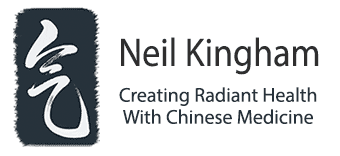Acupuncture For Anxiety
People often think of acupuncture as a treatment for physical problems, and search out an acupuncturist when they have a bad back, headaches, or a frozen shoulder. But fewer people think of it as a treatment for mental or emotional conditions, which is a shame, as it’s a very effective treatment these kinds of problems.
In this post, I’ll talk about acupuncture for anxiety, because it’s something I’ve treated quite a lot in my Bristol Acupuncture Clinic, and I’ve personally found that acupuncture can be a very effective treatment.
How Does Acupuncture Treat Anxiety?
Chinese medicine does not distinguish physical conditions from mental or emotional ones – and this is the key concept for understanding how acupuncture can treat a psychological complaint.
Anxiety is a manifestation of some kind of disruption of your Qi. In this way, as a symptom, it is no different from any other symptom such as pain, low energy levels or headaches. In simple terms, any symptom – be it physical, mental or emotional – indicates that the energetic system is not functioning correctly, and the way to remove the symptom is to identify the root cause, and remedy it.
Of course, everyone who is experiencing anxiety has a different experience of it, and it’s the acupuncturists job to carefully get to understand exactly how the anxiety is manifesting – for instance, one person may be fine most of the time, but experience debilitating panic attacks in stressful conditions, and another may have a constant low level of ‘background’ anxiety that makes it hard to relax or switch off.
Anxiety sometimes accompanies or alternates with depression, and may also occur alongside a variety of physical complaints – low energy, digestive upsets, breathing problems, headaches etc
Acupuncture is a holistic treatment for anxiety, and the exact treatment will depend on the exact ‘pattern’ of symptoms – it means that each treatment is tailored to the individual, and there is no ‘one size fits all’ approach.
Anxiety in Chinese medicine can be broadly categorised into 3 types:
- Stagnation – This kind is often caused by stress, repressed emotions or frustrations. It comes and goes, and is accompanied by physical pain, tightness or tension. There are often digestive problems, too. It often responds extremely well to acupuncture.
- Heat – This kind comes with definite feelings of overheating – flushing, night sweats, red face etc. There is often irritability or anger as the heat ‘stirs up’ the emotions. There may also be headaches, or eye problems. Acupuncture works by clearing the Heat, and settling the Spirit.
- Deficiency – This kind of anxiety is more low level and in the background, but is normally quite constant. There may be difficulty relaxing and a constantly active mind. Energy levels will be low, and there may also be depression. Acupuncture is effective for this kind of anxiety, although treatment may take longer. Herbs can be useful, too.
This is a bit oversimplified, and in practice the categories are not so clear-cut, but hopefully it gives you an idea of how Chinese medicine understands anxiety.
Research On Acupuncture For Anxiety
There have been quite a few studies looking at the acupuncture treatment of anxiety. For instance…
Brazilian researchers found that acupuncture can reduce anxiety symptoms in women undergoing IVF. Women undergoing IVF were randomly allocated to two groups: a test group who received acupuncture, and a control group who had placebo acupuncture: needles inserted in areas near, but not corresponding to, acupuncture points. The average anxiety score after the four-week experimental period was significantly lower in the test group compared with the control group (19.4 vs 24.4).
A meta-analysis performed by Korean researchers (and published in Evid Based Complement Alternat Med.) looked at 14 published papers (involving 1,034 subjects in total) and concluded that acupuncture therapy aimed at reducing pre-operative anxiety has a statistically significant effect relative to placebo.
Finally, A UK pilot study (in Acupunct Med. 2015) suggests that acupuncture may be a promising intervention for patients with chronic anxiety symptoms that have proven resistant to other forms of treatment.
Forty participants from a psychiatry waiting list were randomised into one of two groups. One group received 10 weeks of acupuncture, while the other group acted as a waiting list control group. Both groups were followed up for 10 weeks after treatment. State anxiety scores in the acupuncture group were found to decrease from 57.7 to 38.8, while scores in the waiting list control group decreased from 61.5 to 60.6. This difference was highly statistically significant.
So if you know anyone who is suffering from anxiety, there are lots of reasons to consider giving acupuncture a try – it’s natural, side-effect free, and most of all, it works!
Click here for more about my Bristol Acupuncture Practice









